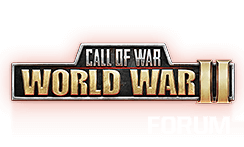Been wondering for a while if Nukes were worth the effort. Had a friend of mine attack an army of mine to get some idea of damage per explosion. He used the first level nuke bomber.
See my 3 links.
Overall damage from two attacks on one army was just over 50%, plus damage to province which I didn't include here as target was army. Considering each plane/missile is a one time attack not sure if its worth investing into unless it is a very long game.
Comments? Personal experience?
Original Army
After first Attack
After second Attack
See my 3 links.
Overall damage from two attacks on one army was just over 50%, plus damage to province which I didn't include here as target was army. Considering each plane/missile is a one time attack not sure if its worth investing into unless it is a very long game.
Comments? Personal experience?
Original Army
After first Attack
After second Attack





